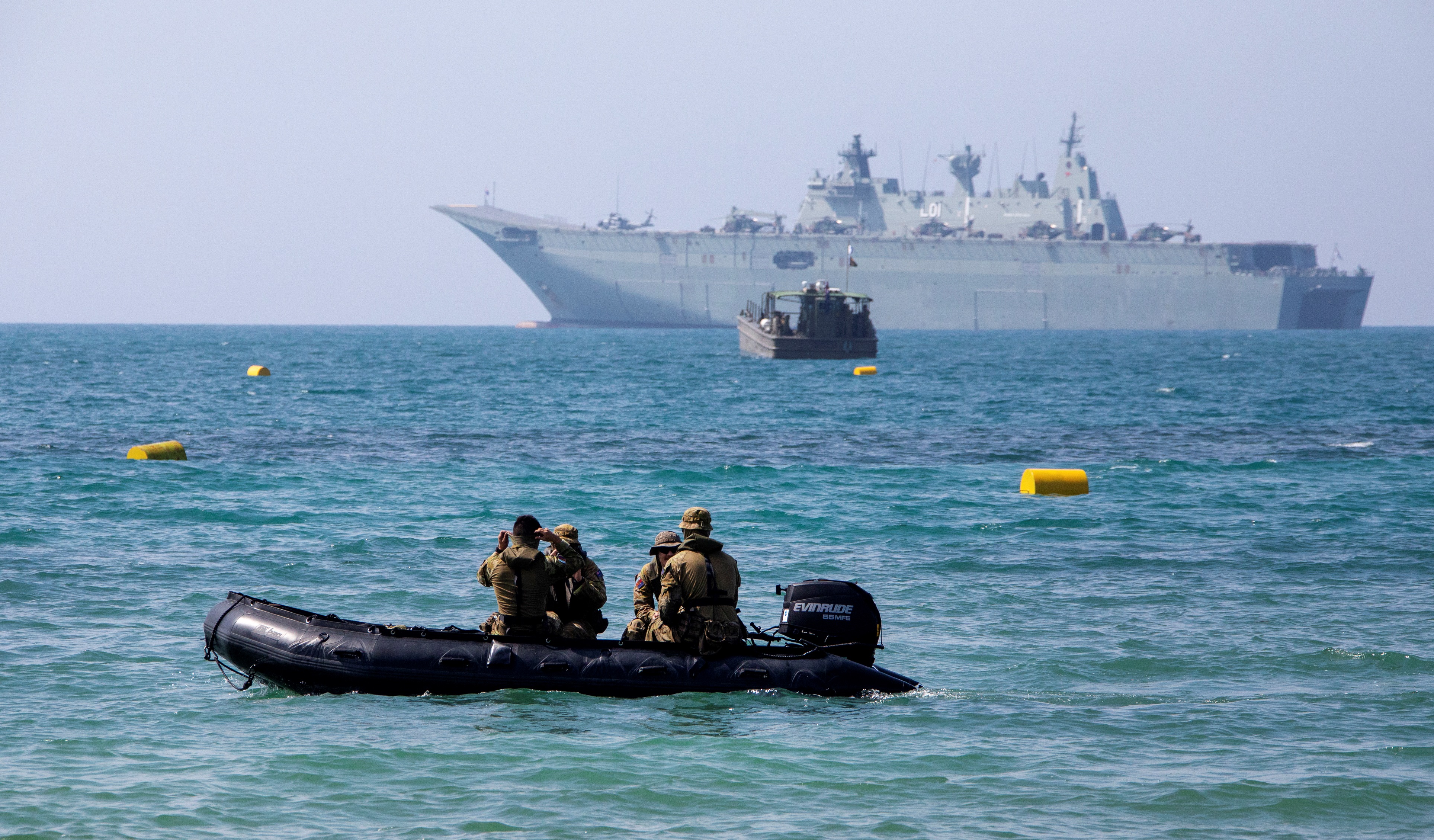Foreign troops pour into PNG capital for APEC meet
Thousands of military personnel, around half of them foreign, will help secure the APEC summit in Papua New Guinea (Ness Kerton)
Port Moresby (AFP) – Papua New Guinea has deployed a multi-national force of warships, fighter jets and elite counter-terrorism troops to protect world leaders attending a major summit in its crime-plagued capital this week.
About 4,000 military personnel, around half of them foreign, will work with hundreds of police to patrol Port Moresby for the Asia-Pacific Economic Cooperation forum from Saturday, which will attract representatives from 21 nations.
Attendees are set to include China’s President Xi Jinping, Japanese Prime Minister Shinzo Abe and US Vice President Mike Pence, who is not even expected to sleep in the city, but stay overnight in Australia.
Up to 15,000 delegates are expected at the summit. Due to a shortage of hotel accommodation, many of them will bunk down on three cruise liners docked at the port, presenting additional security complications.
Although the threat posed by terrorism in PNG is considered minimal, the Melanesian country’s reputation for lawlessness and violent crime precedes it.
About half the capital’s 300,000 people live in squatter settlements, and it was ranked fourth-last in this year’s Economist Intelligence Unit list of the world’s most liveable cities.
Feared street gangs known as “raskols” have made car jackings common and the country has among the highest rates of rape and domestic violence in the world.
To ensure delegates are safe, the government has enlisted military help from Australia, the United States and New Zealand.
Canberra is bankrolling much of the security operation.
It has sent a 1,500-strong Australian Defence Force (ADF) contingent, along with RAAF F/A-18 Super Hornet fighters, surveillance aircraft and a helicopter carrier moored in Port Moresby harbour.
Vessels from Australia, New Zealand and the US will guard the capital’s shores, and all three countries have provided special forces.
Working alongside them in an operation that has taken more than a year to plan will be about 2,000 Papua New Guinea troops.
– ‘Don’t be alarmed’ –
A headline in the Post-Courier newspaper last week proclaimed an “APEC Invasion”, although Joint Security Task Force (JSTF) chief Commissioner Gari Baki told Port Moresby residents the foreign troops were nothing to worry about.
“I would like to reassure the community that they should not be alarmed,” he said, noting the international force was “here at our request”.
The government has passed laws allowing international security personnel to use lethal force if necessary to deal with an “imminent threat” during the summit.
Former PNG defence force chief Jerry Singirok has raised concerns the move impinges on the country’s sovereignty.
But Canberra-based military think tank the Australia Defence Association said if developing nations such as Papua New Guinea did not accommodate foreign security contributions, they would never be able to host major events like the APEC summit.
“That wouldn’t be good from a strategic level or a political level,” executive director Neil James said.
The huge numbers of police and military in Port Moresby for the summit meant crime is “not going to be a problem”, he added.
– Hospitals v Maseratis –
The government views the summit as a rare opportunity to showcase Papua New Guinea to the world and attract investment to the poorest of APEC’s 21 member nations.
“It’s a major undertaking, but it’s very important when it comes to promoting the country economy-wise,” said Justin Tkatchenko, the minister responsible for planning the summit.
“We’ve never had leaders like this… ever come to this area… The whole world will be watching.”
More than a third of Papua New Guinea’s 8.5-million population lives below the poverty line, while tribal and political violence is a recurring problem, particularly in the Highlands region.
Port Moresby itself has been given a facelift for the summit, with major infrastructure projects — many funded by China.
Outside the capital, economic growth driven by the development of resources has stalled, leaving the vast majority of the population with poor basic services such as health and education.
Many have questioned why vast sums are being spent on APEC — including 40 Maserati cars worth more than $150,000 each — when provincial hospitals are struggling with chronic shortages of medical supplies.
But Treasurer and Deputy Prime Minister Charles Abel said making a positive impression at APEC, which collectively accounts for 60 percent of global GDP, could make a difference.
“We need investment, we need partnerships, we need capital to develop our country,” he said.
“So APEC is going to present a wonderful marketing opportunity for Papua New Guinea because there’s so many opportunities with the wealth that we have and the beautiful people that we have and the wonderful culture that we have.”
— Radio New Zealand contributed to this report —
Disclaimer: This story has not been edited by Siliconeer and is published from a syndicated feed. Siliconeer does not assume any liability for the above story. Validity of the above story is for 7 Days from original date of publishing. Content copyright AFP.


